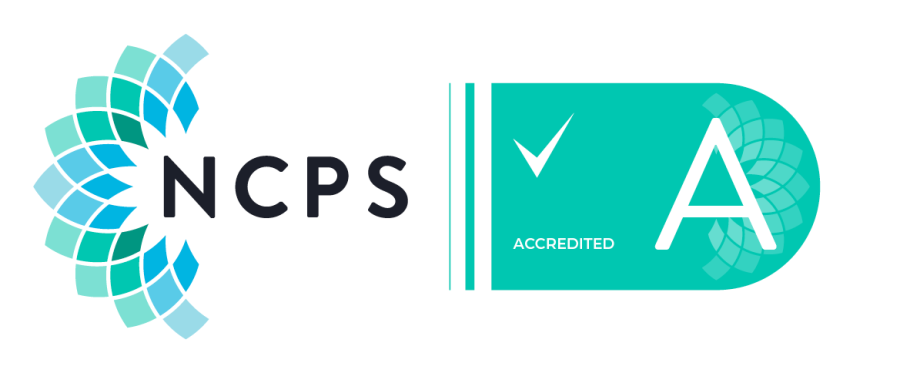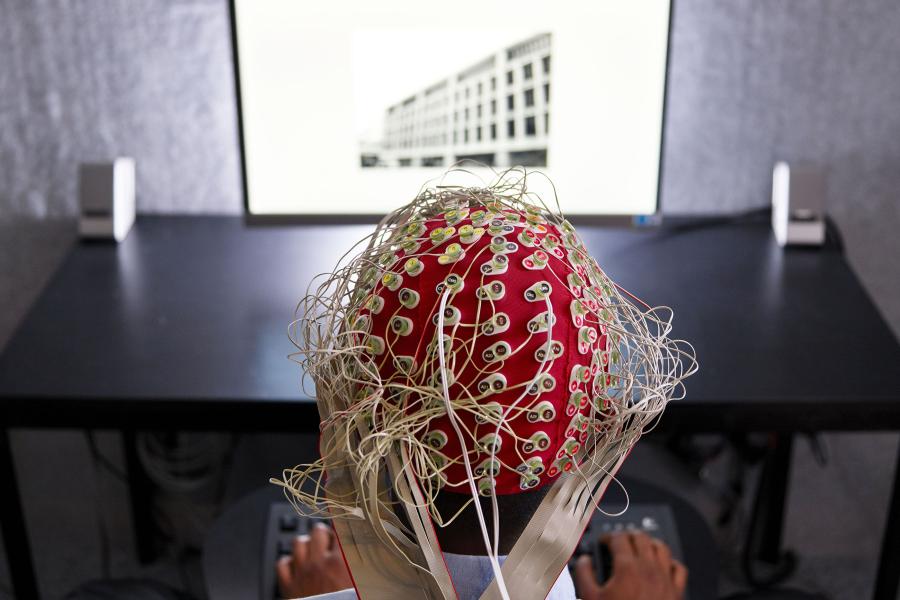About This Course
Our MSc in Counselling at Bangor University aims to prepare you to take an active role as a member of the professional counselling/psychotherapy community.
Counselling Masters: Comprehensive Training in Counselling and Psychotherapy - Diverse Approaches

This course explores a range of psychological approaches and therapeutic methods to provide holistic training in adult counselling. You will learn about the Humanistic approach and Person-Centred therapy, Psychodynamic approach and Psychoanalytic therapy, Behavioural approach and Behaviour therapy, and Cognitive approach and Cognitive therapy. In addition, you will be introduced to several integrative approaches (for example, we might explore Rational Emotive Behaviour Therapy, Gestalt Therapy, or Transactional Analysis).
This Counselling Masters can be taken as a full-time two-year course or a part-time four-year course and there is more information on how that works in practice in the Course Content tab.
Develop Essential Counselling Skills Through Practical Training Counselling Masters
You will also take part in practical activities to develop your communication skills and integrate therapeutic techniques into your practice. You will engage in regular observed counselling skills sessions with your peers and this will prepare you for undertaking a placement of 100hrs of supervised counselling. Our skills lecturers and placement coordinator have an extensive counselling background working with clients in the NHS, and they will support you in developing your counselling skills and applying them in practice on placement. Our previous students have completed these placements with organisations such as the NHS Primary Mental Health Service, bereavement service CRUSE, Age UK, the Rape and Sexual Abuse Support Service, etc.
Our course also has a strong academic core and we are proud of the way that we integrate Psychology and Research training throughout the course to ensure that our graduates are fully rounded practitioners. Our modules draw on the expertise of a range of practitioners in addition to counsellors - including clinical psychologists and researchers – to provide comprehensive training in mental health. Evidence-based practice is becoming increasingly in demand within this sector and we prepare our students for a career which may require them to draw on research skills and psychological knowledge, alongside applied counselling skills.
The extensive curriculum covered on our programme will equip you to work with clients across various settings, and provide you with a toolkit of evidence-based techniques and relationship-focused methods. This training programme is designed to provide you with an opportunity to graduate with all of the skills needed to apply for doctorate level study or work in an empirically-based practice.
If you complete the MSc in Counselling with the counselling placement, then you will meet all of the requirements to apply for registered counsellor status with the National Counselling and Psychotherapy Society (NCPS) and/or the British Association for Counselling and Psychotherapy (BACP). Both of these professional bodies are accredited by the Professional Standards Authority under its Accredited Registers for Health and Social Care. Our course meets all of the requirements for you to become a student member of the NCPS and/or BACP while studying. After graduating from our course, you can then apply to become an Accredited Registrant with the NCPS and/or Individual Member of the BACP (moving to Registered Member after passing their online Certificate of Proficiency test). Membership of either of these professional bodies will place you in a strong position to apply for jobs in counselling or begin working towards establishing your own private practice.
This course is led by Prof Fay Short, who is a Chartered Psychologist with the British Psychological Society and a registered member of the British Association for Counselling and Psychotherapy. She is a Principal Fellow of the Higher Education Academy and her teaching excellence has been recognised in a highly prestigious National Teaching Fellowship award. In her therapeutic work, she is an accredited hypnotherapist, NLP practitioner, Executive Coach and Mentor, and advanced practitioner of REBT, alongside her core training in counselling. Her dual role of counsellor and psychologist also enabled her to produce her textbook, Core Approaches in Counselling and Psychotherapy, which seeks to explain client work from both a therapeutic and psychological perspective. Prof Short draws on her extensive experience in academia and her practical work in the field to provide students on our MSc in Counselling with an in-depth insight into the theory and practice of modern counselling techniques.
MSc Counselling Student Comments
Our course over the last two years has seen a 100% pass rate, with over 90% graduating with either a Merit or Distinction. Students on placement during those two years have provided one-to-one counselling for over 300 clients. Here are some of their comments about the course and placement experience:
"I feel that this course has allowed me to develop my communication and listening skills that are most valuable in both my personal and professional life. My friends and family have expressed how I present myself as more confident now than I was before I started the counselling course."
"This course helped me to develop my soft skills such as teamwork, self-management, written and verbal communication skills. I believe these skills, combined with my improved abilities to regulate my emotions by critically reflecting upon my experiences and perspective-taking, greatly increased my future job prospects."
"Beyond the academic training of the course, the process of the course has taught me more about how I can better help myself to help others."
"I have gained perspective, whilst recognizing that I am only just moving out from a sheltered bay and into an expecting ocean, where all encounters behind and before me are grist for the mill."
"The element of the course I value the most is the confidence I’ve gained through facing my fears and the newly gained confidence I have to face future ones.""
"I am working full time for NHS England helping the Primary Mental Health Counselling establish the Social Prescribing Programme within Primary Care Networks. To secure this position I had to present excellent knowledge of mental health, social prescribing, and counselling skills (including research skills). Without the placement, degree, and further clinical and psychological understanding gained during my extra two modules I would not be where I am today. Every now and again, when met with challenges, I get to acknowledge and appreciate the high quality of my Bangor degree - my awareness and thorough understanding of the ethical framework as a Counsellor puts me ahead of the competition."
MSc Counselling Short Video Introduction
Comprehensive Overview of Counselling Masters at Bangor
This video, by the course director provides, a comprehensive overview of our MSc in Counselling and the careers it can lead to. It will answer many of your questions and give you a thorough insight into the course so do take the time to watch it.
Research Opportunities
The academics teaching on this course are either fully qualified counselling practitioners or PhD qualified psychology researchers. This course draws on expertise from across the School of Psychology and invites a diverse range of guest speakers from the field of mental health, including clinical psychologists, counsellors, and researchers. Our close collaboration with the Primary Mental Health Service (NHS) in North Wales ensures that our course content remains closely aligned with the current needs of the mental health sector.
Counselling Masters at Bangor University: Your Path to a Rewarding Career
This page provides an overview of the MSc Counselling programme at Bangor University, answering your questions about the course, careers in counselling, and the application process.
Why Choose a Career in Counselling?
Counselling is an expanding field with increasing demand. Studies show that a significant portion of the population experiences common mental disorders like depression and anxiety, highlighting the critical need for qualified therapists. While the job market can be competitive, the MSc Counselling at Bangor University provides you with the skills and knowledge needed to excel in this rewarding profession.
Counselling Masters: The Road to Becoming a Qualified Therapist
Navigating the path to becoming a qualified counsellor can seem complicated. In the UK, titles like "Counselling Psychologist" and "Clinical Psychologist" are protected, requiring a doctorate and registration with the Health and Care Professions Council (HCPC). However, the titles "Counsellor" and "Psychotherapist" are not protected.
This distinction means you don't need a doctorate to practice as a counsellor. However, to gain employment and obtain professional insurance, you need a recognised qualification. A diploma-level qualification is the minimum, with a master's degree offering a significant advantage.
The Benefits of a Counselling Masters at Bangor University
The MSc Counselling at Bangor University is designed to meet the requirements of the British Association for Counselling and Psychotherapy (BACP), the UK's leading professional organisation for counsellors and psychotherapists. This programme offers several advantages:
- Gain BACP Recognition: Upon graduation, you'll be eligible for individual membership with the BACP and can take the Certificate of Proficiency to become a registered member, a crucial step for starting your counselling career.
- Develop a Strong Scientific Foundation: As an MSc programme, the course emphasises the scientific and empirical basis of counselling, training you to be an evidence-based practitioner.
- Master a Variety of Therapeutic Approaches: The programme follows an integrative approach, drawing on humanistic, psychodynamic, cognitive, and behavioural therapies, giving you a well-rounded skillset.
- Gain Real-World Experience: The programme includes an integrated placement, providing you with 100 hours of supervised adult counselling experience, fulfilling BACP registration requirements.
- Benefit from Personal and Professional Development: You'll receive 15 hours of personal therapy, participate in a unique mentoring scheme, and complete 30 hours of work-based learning, enhancing your personal and professional growth.
Course Structure: Full-Time and Part-Time Options
The MSc Counselling at Bangor University offers flexibility to suit your circumstances.
- Full-Time Study: The full-time programme runs for two years, allowing you to build a solid foundation in counselling theory and practice before starting your placement and research project.
- Part-Time Study: If you have other commitments, the part-time programme runs for four years, providing a more extended timeframe to complete your studies.
Course Curriculum: What to Expect
The MSc Counselling programme is split into two stages:
Stage 1: Core Training
In the first stage, you'll gain a strong foundation in core counselling skills and knowledge. This includes:
- Empirical Research Skills: Develop your research skills, from finding and critiquing research papers to designing and conducting your research project.
- Communication and Counselling Skills: Master essential communication and counselling skills, including working with diverse populations and using remote therapy methods.
- Therapeutic Process and Context: Understand the ethical, legal, and professional context of counselling, including boundary issues and the use of language in therapy.
- Mental Health and Well-being: Gain a deeper understanding of mental health and well-being, moving beyond diagnosis to focus on enhancing clients' well-being.
- Psychological Approaches and Therapies: Learn about the four core therapeutic approaches: person-centered, psychodynamic, cognitive, and behavioural therapies.
Stage 2: Specialisation and Application
The second stage focuses on specialisation and application of your skills. It includes:
- Optional Modules: Choose two optional modules from a range of psychology and related subjects, allowing you to tailor your studies to your interests.
- Research Project: Design and conduct your research project, exploring a topic you are passionate about in the field of mental health, counselling, or psychotherapy.
- Placement and Professional Practice: Complete your 100-hour counselling placement and provide evidence of your professional practice, fulfilling BACP requirements.
Applying for the MSc Counselling Programme
Entry Requirements
- A 2:1 or above in an undergraduate degree in a related subject (e.g., psychology, childhood studies, sociology).
- If your undergraduate degree is not in a related subject, a certificate in counselling is typically required.
- Relevant professional experience may be considered.
- An IELTS score of 7 overall with no less than 6.5 in each band may be required for international students.
Application Process
- Apply online through the Bangor University website.
- Complete an enhanced Disclosure and Barring Service (DBS) check.
- Submit regular readiness to practice assessments.
- Shortlisted candidates will be invited for an informal, remote interview, including a group case study discussion and an individual interview.
Key Dates and Deadlines
- Annual recruitment drive: Applications are reviewed on 1 June each year.
- Shortlisting: Shortlisting for interviews takes place in the second week of June.
- Interviews: Interviews are held in the first week of July.
- Decisions: Applicants are typically informed of the outcome in the second week of July.
Are You Ready to Take the Next Step?
The MSc Counselling at Bangor University offers a comprehensive and supportive environment to launch your career in counselling. If you're committed, dedicated, and passionate about helping others, we encourage you to apply.
Course Content
What will you study on this course?
This course trains you in integrative counselling, and this means that your training will combine elements from different approaches and therapies around therapeutic principles:
- A relationship between the therapist and client which incorporates the core conditions will provide a framework for therapeutic work leading to change;
- Thoughts, feelings, and behaviour reflect past patterns of relating and can be reformed by exploring experiences within the boundaries of this therapeutic framework;
- Cognitive schemas and behavioural patterns established in this past and reinforced in the present can be modified for the future through challenge and experimentation both within and beyond this safe therapeutic relationship.
Counselling MSc Course Structure
This course can be studied full-time over 2 years or part-time over 4 years. On the full-time route during the first year of the course you will gain a comprehensive understanding of psychology, counselling, research, and mental health by covering topics including:
- empirical research in therapy,
- communication and counselling skills,
- therapeutic process and context,
- mental health and wellbeing,
- different approaches and therapies (including Humanistic approach and Person-Centred therapy, Psychodynamic approach and Psychoanalytic therapy, Behavioural approach and Behaviour therapy, Cognitive approach and Cognitive therapy).
During the second year of the course, you will have a unique opportunity to elect two modules from the wide range of options available in the School of Psychology. These options may include courses in Clinical Psychology, Neuropsychology, and Applied Behaviour Analysis (subject to availability). This additional specialised training will give you an extra advantage as a counselling graduate, and will further equip you with the skills needed to excel in your career. You will also complete a research project and compile a portfolio of placement experience.
Full-Time Study
- In the first year, students will attend classes on a Monday and Tuesday. Students will also attend four Wednesdays across the year for assessments (dates will be provided at the start of the semester). Those intending to complete a counselling placement will also attend placement support sessions on a Wednesday morning, but these will be available to access remotely via videocall.
- In the second year, students will attend one morning per week of classes for research and practice. Students will also take two elective modules and the timetable for these will depend on the chosen modules.
Part-Time Study
- In the first year, students will attend classes on a Monday. Students will also attend two Wednesdays across the year for assessments (dates will be provided at the start of the semester).
- In the second year, students will attend classes on a Tuesday. Students will also attend two Wednesdays across the year for assessments (dates will be provided at the start of the semester). Those intending to complete a counselling placement will also need to attend placement support sessions on a Wednesday morning in the second year, but these will be available to access remotely via videocall.
- In the third year, students will take two elective modules and the timetable for these will depend on the chosen modules
- In the fourth year, students will attend one morning per week of classes for research and practice.
- In addition to the above scheduled classes, there are also regular additional open-access support sessions available to all students after class on a Monday and Tuesday and in the morning on a Wednesday. Outside of the scheduled class times, students are free to engage with readings, complete assessments, meet the placement requirements, and fulfil any other obligations (such as part-time work, family commitments, etc.).
Your Learning Experience: Teaching and Assessment on the Counselling MSc
Our MSc in Counselling will use a range of teaching methods to provide a challenging and engaging learning environment. You will attend lectures introducing the core theories, be supported through computer labs, watch video demonstrations of counselling in action, participate in workshops simulating counselling and supervision, debate important and controversial issues in the field, and receive regular one-to-one support from your personal and professional development tutor. Your assessments on the course will also be varied and diverse, and they will include essays, on-line quizzes, oral exams, presentations, and research reports. You will receive support and guidance for all of these assessments, as we work with you to ensure that every individual has an opportunity to excel.
Research Thesis
Our MSc in Counselling includes an empirical research project in the field of counselling. Our two-year course will provide you with enough time to develop your research skills, design a project, obtain ethical approval, run your study, and write up your research thesis. Research is an essential skill for a career in counselling, as more workplaces demand that their counsellors are able to empirically test their interventions and evidence their impact on clients. Our research training will help you to develop these skills and your research thesis will demonstrate that you are able to work as an empirically-based practitioner.
Counselling Placement
Our MSc in Counselling requires that you complete a core counselling placement of 100 supervised face-to-face counselling hours with adult (18yrs+) clients and 50 hours of work-based practice. After learning the foundations of ethics, boundaries, and communication skills in the first semester, you can begin your placement at the start of the second semester in your first year. You will need to complete all of your hours before graduating from the course in order to gain the MSc in Counselling. You will be provided with support and guidance in identifying a suitable placement, but the responsibility for obtaining a placement and completing all required hours remains with the student. You will also be responsible for ensuring that every month of practice is supported by at least 1.5 hours of supervision by an appropriate counselling supervisor (please be aware that you may need to pay for the services of a supervisor, if sufficient supervision is not provided within your placement). You will also be required to complete at least 15 hours of personal therapy while on the course (please be aware that you may need to pay for the services of a personal therapist). Supervised practice and work-based learning hours are a core requirement of the British Association for Counselling and Psychotherapy.
Modules for the current academic year
Module listings are for guide purposes only and are subject to change. Find out what our students are currently studying on the Counselling MSc Modules page.
Course content is for guidance purposes only and may be subject to change.
Entry Requirements
You must have one of the following academic qualifications:
- 2ii or above undergraduate degree in psychology or counselling (or closely related) subject
- OR 2ii or above undergraduate degree in unrelated subject AND certificate in counselling
- OR relevant professional experience AND evidence of academic capability to postgraduate level
If the applicant has English as a second language, then they will also be required to hold an IELTS of 7 and exhibit clear evidence of communication skills through the medium of English in the interview.
Applicants will also be required to complete a Disclosure and Barring Service (DBS) check. Applicants who have lived or worked outside of the UK for 12 months or more may also be required to submit a check appropriate to that country.
Applicants must pass a structured interview (including a small group activity), and acceptance on the course will depend on their fitness and suitability to practice counselling with vulnerable adults. This interview is an essential part of the assessment to determine suitability for placement, and the placement is a core requirement of the British Association for Counselling and Psychotherapy. The interview will be conducted online so the applicant must have access to a device with internet access, the capacity to download Microsoft TEAMS, speakers, a microphone, and a camera.
Careers
One in four adults experience at least one mental health difficulty in any given year and mental health issues account for the largest single cause of disability in the UK (Mental Health Taskforce Strategy, Feb 2016).
The NHS committed to a transformation of mental health care across the UK and pledged to invest more than one billion pounds a year by 2020/21. As a result of this commitment and the increasing need for mental health support, employment opportunities in counselling are likely to expand in the near future. Graduates from this course will be particularly well equipped to succeed in this growing market.
Student Comments
"I wasn't expecting to find a way to work full time as a counsellor within my first year of qualification, but I've been really pleasantly surprised to be working with 20 clients a week. It's sometimes a bit overwhelming, but I'm getting used to it and am generally just really grateful for my career thus far. I went into private practice in October 2020, and I'm happy to say that my books are full!"
"I am working as a psychological wellbeing practitioner for an employee assistance provision. This company offers drop ins for domestic violence and substance misuse. To secure this role, I was asked to explain how I developed my therapeutic orientation and my experiences of counselling. Without the course, I would not have had the opportunity to develop my knowledge and practice in counselling, and would not be in this position."
Application
Applications will be accepted throughout the year, but we advise you to apply before 1st May after which we will start to shortlist and schedule interviews. This course has a maximum capacity and, once that is reached, no more applications will be able to be considered for the next year of entry, though we may offer future places if they become available due to withdrawal/deferral.
For applications received by 1st May:
- First week in May: All applications received to date will be reviewed together.
- Second week in May: Selected applicants will receive an invite to an online interview and applicants not selected for interview will be notified (please check emails/post).
- First week in June: Interviews will be held online so the applicant must have access to a device with internet access, the capacity to download Microsoft TEAMS, speakers, a microphone, and a camera. Although we cannot guarantee the ability to reschedule for allocated time, we are committed to making every reasonable attempt to be flexible for those with real problems in making their original date.
- Second and third weeks in June: Successful and unsuccessful applicants will be notified.
- Applications received after the 1st May will be considered in the second recruitment round if places are still available.
International Students
For information and further detailed guidance on entry requirements for International Students, including the minimum English Language entry requirement, please visit the Entry Requirements by Country pages on the International Education Centre section of our website.
If you want advice or a general chat about what’s available contact the International Education Centre on +44 (0) 1248 382028 or email international@bangor.ac.uk





